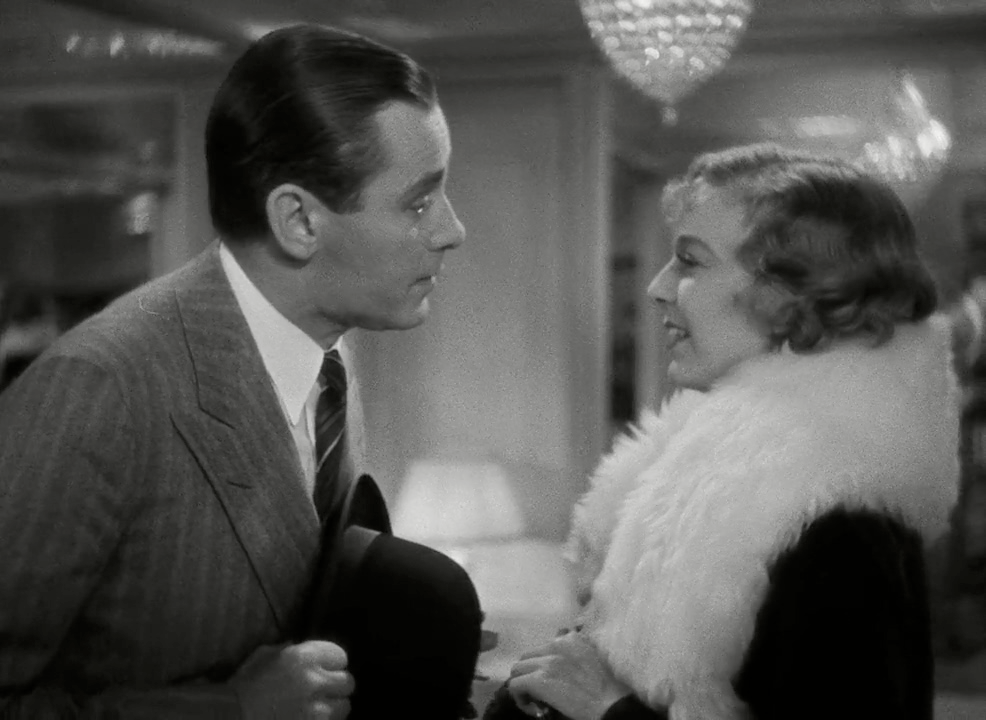At this year’s TCM Classic Film Festival, this was the first movie on the line-up and it was a great little appetizer to the rest of the festival. A fluffy little film with a foreword from William Wyler‘s son, we learned a lot of nice little trivia before the movie even started. For example, when filming started, Margaret Sullavan and William Wyler hated each other, but in working out how to improve their relationship on set they ended up falling in love and getting married. She was a certified star at the time while Wyler was a relative unknown director. Wyler’s son told the audience that William blew most of his paycheck on their honeymoon and money troubles contributed to some of their marital issues. Although the marriage was apparently short-lived, Sullavan really shines in this movie (and to be honest, she’s not usually my favorite). Before the screening, Wyler’s son mentioned that he thought it would be hard to make a film like The Good Fairy today because of how the plot is structured, and after viewing, I can see what he meant.

The story is…complicated. The opening shows a movie theater owner entering a girls orphanage and speaking with the matron there about a problem he’s having. His movie theater is very successful but he’s having problems with his usherettes dating all of the audience members. (This is a good time to remind you that this movie takes place in 1935.) His wife advises him to hire an orphan girl who would likely be less “worldly” and more “all-business,” or something to that effect. He chooses Louisa (Margaret Sullavan) to be the first to see if this plan works in action. As she is released from the orphanage, the matron reminds her to try to do one good deed every day as an act of pure selflessness. Out in the real world, Louisa starts her career as an usherette and ends up befriending one of the patrons (Reginald Owen, who you might know from the 1938 version of A Christmas Carol), who is a waiter at a swanky restaurant. Encouraging her to live a little, he sneaks her into his fancy restaurant, where she has a swell time until she bumps into a man named Konrad (Frank Morgan, who you might recognize as the Great and Powerful Oz). Coming onto her a little aggressively, Louisa fibs that she’s married, and instead of taking the hint, Konrad tries to persuade her that he can still be her sugar daddy by employing her husband and making him rich (by the transitive property???). Picking a name from the phone book while Konrad isn’t looking, Louisa chooses a poor lawyer, Dr. Sporum (the sweetest, dearest Herbert Marshall), to be the recipient of Konrad’s intentions.
Okay that was a lot to process, but basically what happens is that Louisa ends up meeting and falling for Dr. Sporum and then has to choose whether to come clean to Konrad about the whole misadventure.
The acting performances of Sullavan and Marshall are enough to make this a very sweet viewing. I hadn’t seen either in very many films before; Sullavan I always see in The Shop Around the Corner and Marshall I had only seen as the sickly father in The Little Foxes (also a Wyler film, btw!). I give them credit for being more versatile than I realized they’d be. Sullavan plays the role well, endearing the audience to her as a sort of big sister role in the orphanage and as a believable green horn for the realities of real life as an attractive woman. Herbert Marshall shows his acting chops with both the comical beard-and-comb routine and sweet sincerity as a love interest, and his performance gives a breadth to his character that the film needs. Their chemistry together is sweet and becomes the heart of the film. I also enjoyed Reginald Owen, who I’d only ever seen as a caricatured Scrooge, but who carries his disgruntled comic relief banner well here.
I’ve got to say, the only performance I had trouble with was with Frank Morgan, whose stuttering sugar daddy role is so long-winded and Porky Pig-esque at one point that I found myself groaning whenever he appeared on screen. Konrad is, I assume, supposed to be a bumbling and comical version of a philanderer, but it gave me the ick anyway. And I found his persistence kind of bewildering, unless we are to believe that someone would be so taken with a girl he had met for about twenty minutes that he’d go through the trouble of hiring her husband on his legal staff so he could buy her a fur coat. I don’t know, felt a tad forced. (One caveat: I will say that one of the biggest laughs of the movie came for me when he unexpectedly trips over a lamp.)
Sweet by the end, despite its many contrivances in plot, The Good Fairy is an airy watch with a nice ending.

